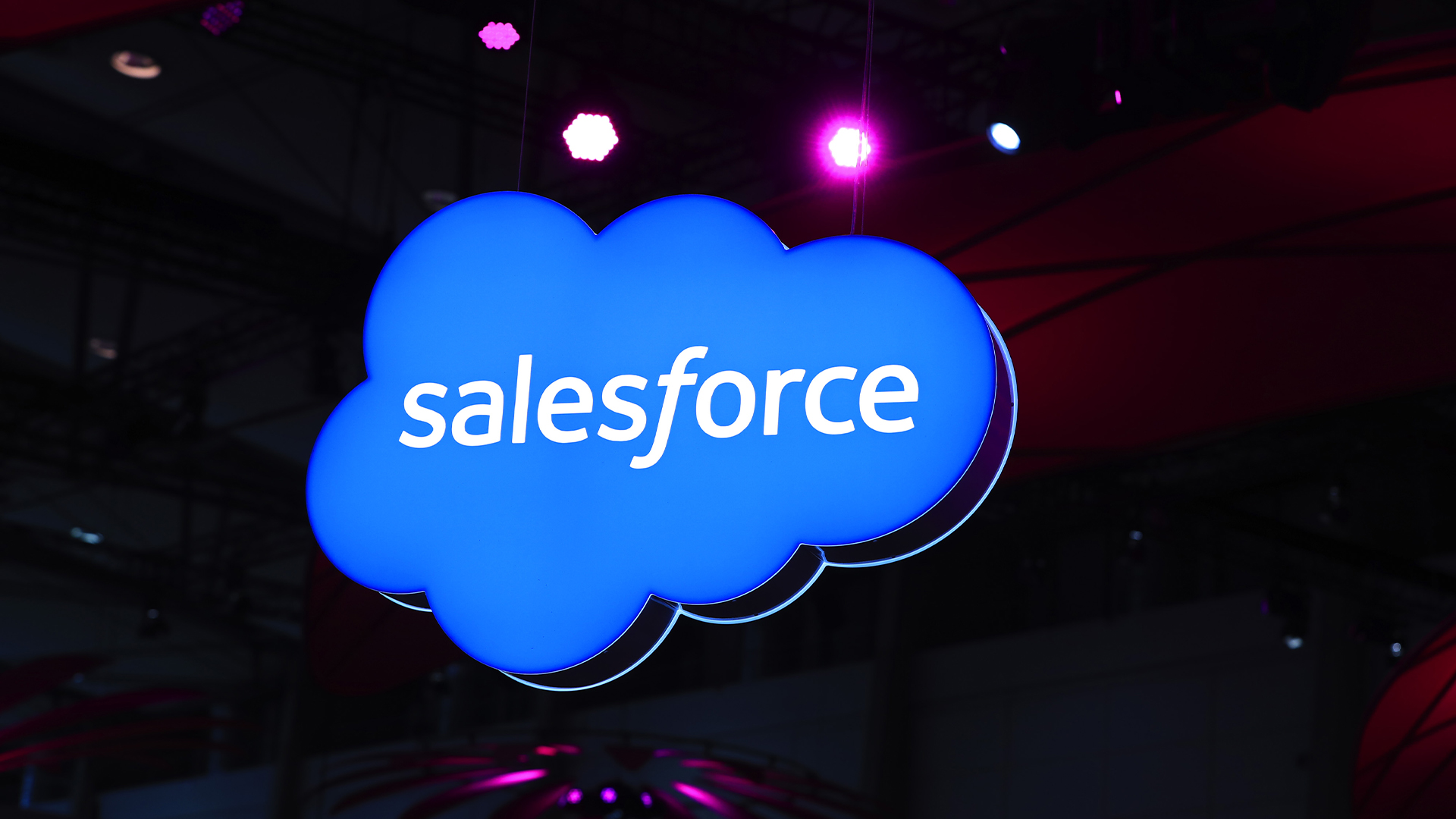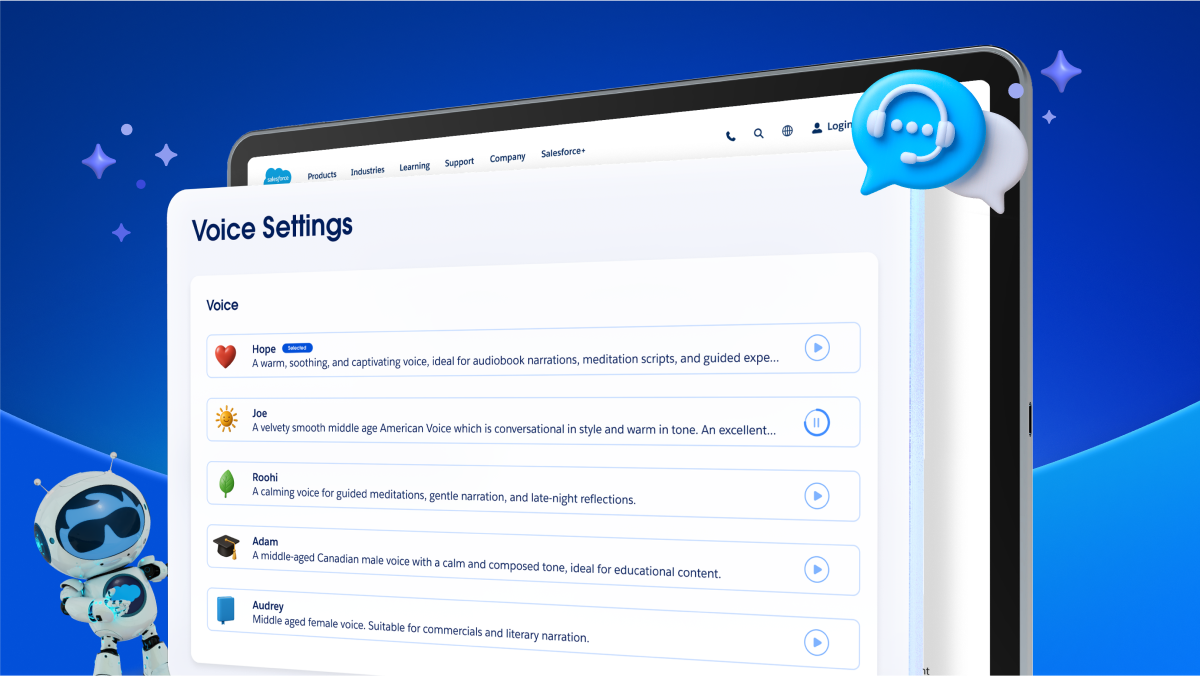Salesforce just launched a new catch-all platform to build enterprise AI agents
Businesses will be able to build agents within Slack and manage them with natural language


Sign up today and you will receive a free copy of our Future Focus 2025 report - the leading guidance on AI, cybersecurity and other IT challenges as per 700+ senior executives
You are now subscribed
Your newsletter sign-up was successful
Salesforce has announced the launch of Agentforce 360, a new combined platform for building, deploying, and managing enterprise AI agents as well as for multimodal and Slack-native agent interaction.
Core to the new platform is a redeveloped Agentforce Builder, through which Salesforce is aiming to make the experience of creating and testing agents as easy as possible.
Workers will now be able to create agents conversationally, using natural language, with Agentforce capable of building agents based on the user’s brief. These agents can then be tested with rapid iterations via a live preview panel and easily exported or connected to existing systems via API or JSON representations.
This pairs with Agent Script, a new portable JSON language to define the behavior of AI agents that was designed with human readability in mind, as well as new configurable controls for Atlas Reasoning Engine, which powers Agentforce.
The announcement was made a day ahead of Dreamforce 2025, its annual conference held at the Moscone Center, San Francisco.
Salesforce eyes a more streamlined Agentforce
Slack is front and center for Agentforce 360, acting as a user interface for interacting directly with Salesforce apps, agents, and more directly within the communication platform. This includes direct interaction with AI agents, as well as connectors for third-party file storage platforms.
Read more in our dedicated write-up on all the new features coming to Slack.
Sign up today and you will receive a free copy of our Future Focus 2025 report - the leading guidance on AI, cybersecurity and other IT challenges as per 700+ senior executives
Separately, Salesforce revealed Agentforce Voice, a new service that powers agents that can realistically interact with customers over the phone.
Enterprises can configure Agentforce Voice agents to follow their brand’s tone of voice, as well as the extent to which agents are allowed to interrupt customers and how long they stay on the phone to give customers a pleasant user experience.

Built on a new framework developed by Salesforce AI Research known as ‘eVerse’, Agentforce Voice can transcribe and stream audio with low latency so the conversation flows naturally.
Once built, agents can be used for phone calls, web apps, text messages and more, and natively link to contact center as a service (CCaaS) platforms including Amazon Connect, Five9, Genesys, NiCE, and Vonage.
Salesforce doubles down on Agentforce for AI ROI
The CRM giant first launched its agentic AI offering, Agentforce, last September and has since doubled down on its use of the platform for internal as well as customer use.
Srini Tallapragada, president & chief engineering and customer success officer, told assembled media that Salesforce has been using Agentforce for customer service and that agents have already answered 1.8 million customer conversations.
Salesforce has repeatedly underlined the usefulness of Agentforce at both the bottom and top line, cutting across different enterprise segments.
For example, Tallapragada explained that Salesforce is also using Agentforce for lead generation, as a company that hosts huge events and often has customers express interest in its services.
“But even though we are a big company, we are also limited in the number of people – most often what happens is we are not able to follow up on all the leads,” he explained.
“We have an SDR team which only takes the top leads, top one percent, two percent. We leave a lot of leads without follow-up, it's too costly for us. Now Agentforce has an SDR which is doing thousands of leads, following up.”
Agents rooted in enterprise data
One of the standout features of the new platform is Context Indexing, which uses unstructured data from across an enterprise such as PDFs, images, flowcharts, and data tables as context for Agentforce.
The process is automatic and can be controlled by data teams using low-code inputs to analyze and fine-tune the knowledge bases upon which Agentforce draws within their enterprise environment.
Salesforce has added additional structured-level governance to Data 360 alongside the feature, to tie new context indexes to existing organizational security and privacy controls.
Tallapragada explained that without access to the right context enterprise AI pilots fall into “pilot purgatory”, citing a recent MIT study which found that just 5% of enterprise AI pilots generate ROI.
For example, Heathrow Airport's AI agent “Hallie”, which has hit a 90% chat resolution rate without needing human intervention, is grounded in data from its CRM, customer loyalty program, digital bookings, and Wi-Fi data to encompass relevant customer information alongside relevant live data such as boarding times.
The agent is accessible via WhatsApp and is core to Heathrow’s goal of increasing its digital contact efficiency by as much as 40%.
Individual parts of Agentforce 360 will be released on a rolling basis between now and the start of 2026.
Agentforce Voice and Context Indexing will be available this month, while Agent Script, New Agentforce Builder, and Agent Graph will be released in beta in November.
Make sure to follow ITPro on Google News to keep tabs on all our latest news, analysis, and reviews.
MORE FROM ITPRO
- Salesforce may have had its ‘ChatGPT moment’ with AI agents
- Marc Benioff’s agentic AI gambit is paying dividends
- Salesforce has cut 4,000 customer support staff for AI agents so far

Rory Bathgate is Features and Multimedia Editor at ITPro, overseeing all in-depth content and case studies. He can also be found co-hosting the ITPro Podcast with Jane McCallion, swapping a keyboard for a microphone to discuss the latest learnings with thought leaders from across the tech sector.
In his free time, Rory enjoys photography, video editing, and good science fiction. After graduating from the University of Kent with a BA in English and American Literature, Rory undertook an MA in Eighteenth-Century Studies at King’s College London. He joined ITPro in 2022 as a graduate, following four years in student journalism. You can contact Rory at rory.bathgate@futurenet.com or on LinkedIn.
-
 Mistral CEO Arthur Mensch thinks 50% of SaaS solutions could be supplanted by AI
Mistral CEO Arthur Mensch thinks 50% of SaaS solutions could be supplanted by AINews Mensch’s comments come amidst rising concerns about the impact of AI on traditional software
-
 Westcon-Comstor and UiPath forge closer ties in EU growth drive
Westcon-Comstor and UiPath forge closer ties in EU growth driveNews The duo have announced a new pan-European distribution deal to drive services-led AI automation growth
-
 Kyndryl wants to help enterprises keep AI agents in line – and avoid costly compliance blunders
Kyndryl wants to help enterprises keep AI agents in line – and avoid costly compliance blundersNews Controls become machine‑readable policies that AI agents can read and must obey
-
 Google says hacker groups are using Gemini to augment attacks – and companies are even ‘stealing’ its models
Google says hacker groups are using Gemini to augment attacks – and companies are even ‘stealing’ its modelsNews Google Threat Intelligence Group has shut down repeated attempts to misuse the Gemini model family
-
 Why Anthropic sent software stocks into freefall
Why Anthropic sent software stocks into freefallNews Anthropic's sector-specific plugins for Claude Cowork have investors worried about disruption to software and services companies
-
 Want to deliver a successful agentic AI project? Stop treating it like traditional software
Want to deliver a successful agentic AI project? Stop treating it like traditional softwareAnalysis Designing and building agents is one thing, but testing and governance is crucial to success
-
 OpenAI's Codex app is now available on macOS – and it’s free for some ChatGPT users for a limited time
OpenAI's Codex app is now available on macOS – and it’s free for some ChatGPT users for a limited timeNews OpenAI has rolled out the macOS app to help developers make more use of Codex in their work
-
 B2B Tech Future Focus - 2026
B2B Tech Future Focus - 2026Whitepaper Advice, insight, and trends for modern B2B IT leaders
-
 What the UK's new Centre for AI Measurement means for the future of the industry
What the UK's new Centre for AI Measurement means for the future of the industryNews The project, led by the National Physical Laboratory, aims to accelerate the development of secure, transparent, and trustworthy AI technologies
-
 ‘In the model race, it still trails’: Meta’s huge AI spending plans show it’s struggling to keep pace with OpenAI and Google – Mark Zuckerberg thinks the launch of agents that ‘really work’ will be the key
‘In the model race, it still trails’: Meta’s huge AI spending plans show it’s struggling to keep pace with OpenAI and Google – Mark Zuckerberg thinks the launch of agents that ‘really work’ will be the keyNews Meta CEO Mark Zuckerberg promises new models this year "will be good" as the tech giant looks to catch up in the AI race